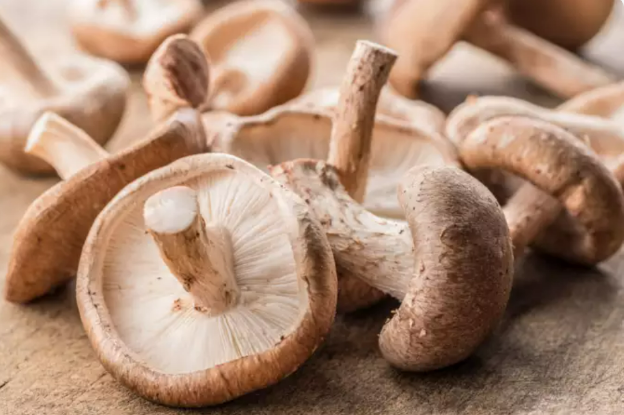Can mushrooms help prevent osteoporosis and heart disease?
Osteoporosis and cardiovascular disease can lead to disability and death. Diet has a major impact on these health conditions. Adding healthy foods like mushrooms to your diet can help support healthy bones and a healthy heart.
1. Mushrooms provide a natural source of vitamin D which helps prevent osteoporosis
Vitamin D plays an important role in calcium absorption, which is important for maintaining strong bones and preventing conditions such as osteoporosis. While sunlight is the main source of vitamin D, many people still do not get enough vitamin D from sunlight.
Very few natural foods contain vitamin D, but mushrooms are a rich source of this nutrient. Mushrooms contain ergosterol, which, under the influence of ultraviolet rays in sunlight, is converted into vitamin D2.
However, the amount of vitamin D in mushrooms varies and depends on how long the mushrooms are exposed to UV light. Fresh wild mushrooms contain the most vitamin D, because they are exposed to natural sunlight. Mushrooms sold in supermarkets, grown in controlled, dark environments indoors, will have less vitamin D. To enhance the vitamin D in mushrooms, some manufacturers expose mushrooms to ultraviolet (UV) light from natural sunlight or UV lamps.

2. Eating mushrooms helps improve cardiovascular health
Mushrooms are rich in both types of fiber: insoluble fiber and soluble fiber. The body needs both types of fiber.
Beta-glucan is a soluble fiber found in mushrooms that forms a gel-like substance in the digestive tract. This gel 'traps' cholesterol and triglycerides, preventing the body from absorbing them during digestion, helping to lower blood cholesterol levels.
Being overweight or obese increases your risk of heart disease. Fresh mushrooms are a great choice for weight control because they are high in water, low in fat, and high in fiber. These three factors help you feel full with fewer calories.
Mushrooms also help replenish antioxidants in the body. Fresh mushrooms contain significant amounts of L-ergothioneine, which acts as an antioxidant. Ergothioneine does not break down when heated, so it is not lost when cooked.
Ergothioneine has been linked to reducing triglyceride levels and helping prevent the formation of arterial plaque, a major contributor to heart disease.
A study found a direct link between dietary ergothioneine intake and better cardiovascular function. Scientists found that people with higher plasma levels of ergothioneine had a lower risk of premature death from heart or blood vessel disease.
3. Mushrooms help improve blood pressure
Several studies have shown that mushrooms, found in the DASH and Mediterranean diets, provide significant benefits for people with high blood pressure. In addition, mushrooms are rich in vitamins such as cobalamin, riboflavin, thiamine, vitamin D, ascorbic acid, and minerals, including magnesium, sodium, calcium, iron, manganese, potassium, phosphorus, and copper.
Mushrooms also contain high levels of flavanols, especially quercetin and fibrinolytic enzymes, which have the effect of dilating blood vessels and inhibiting blood plaque in the arteries, preventing high blood pressure...








